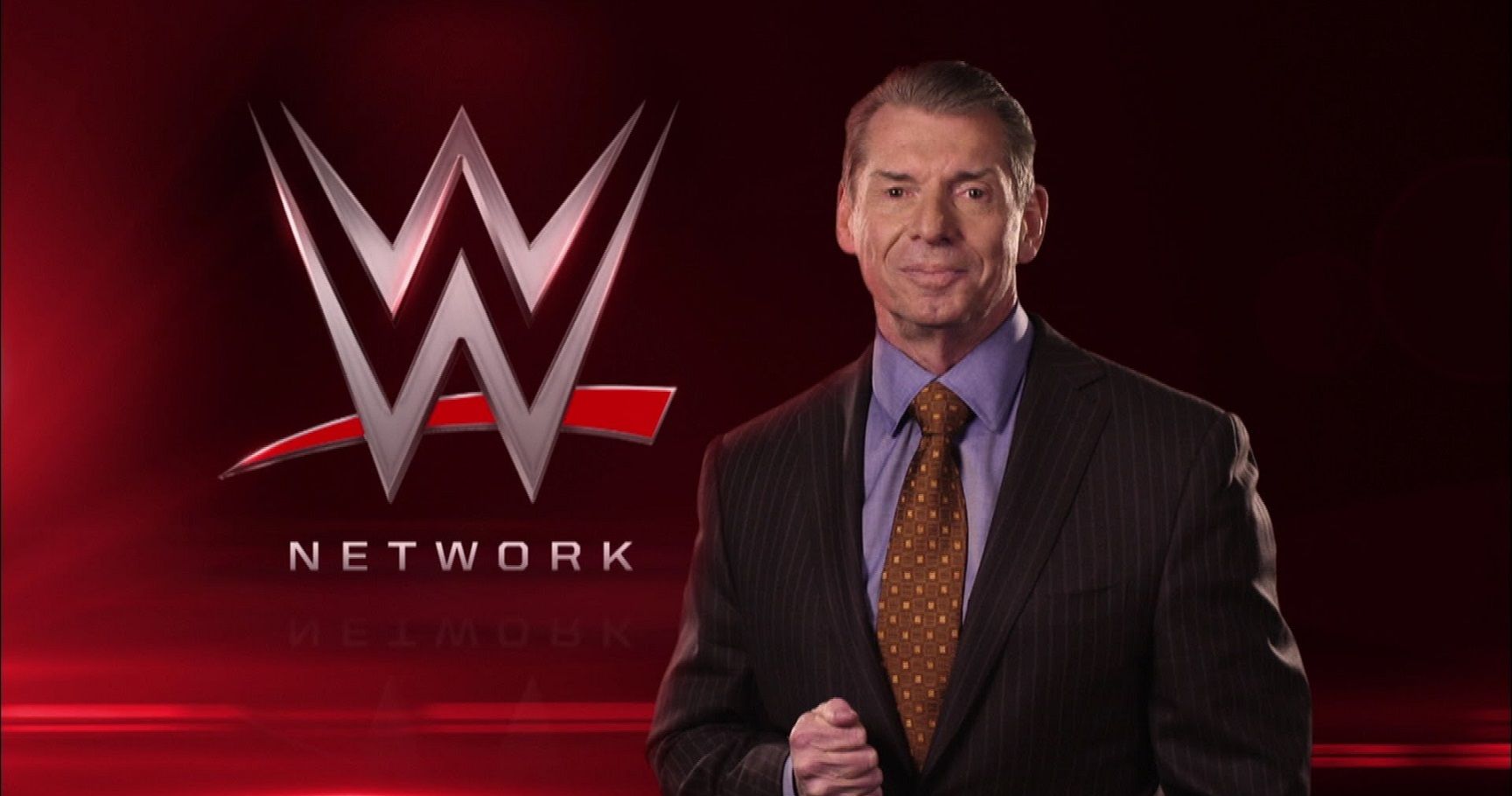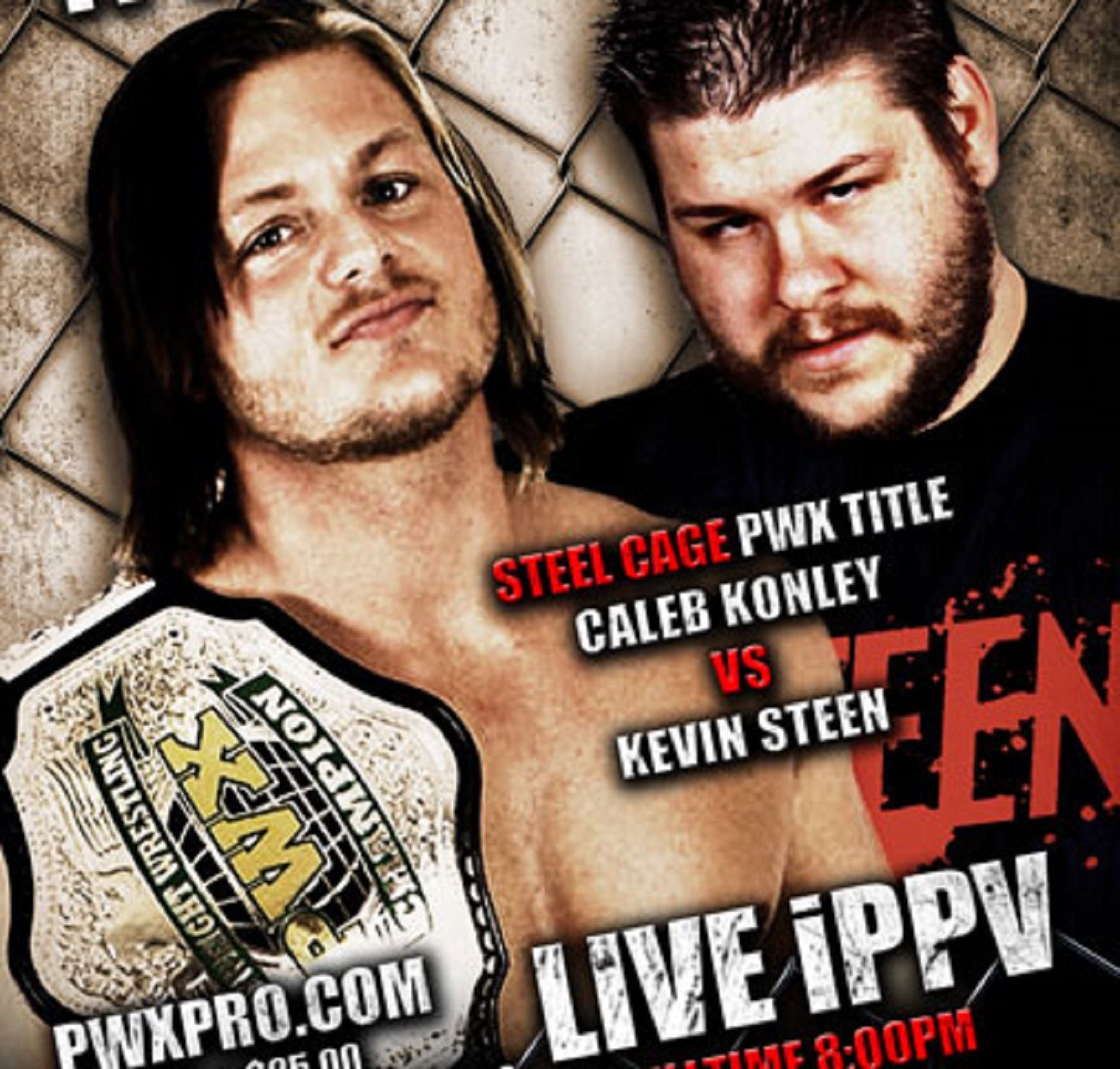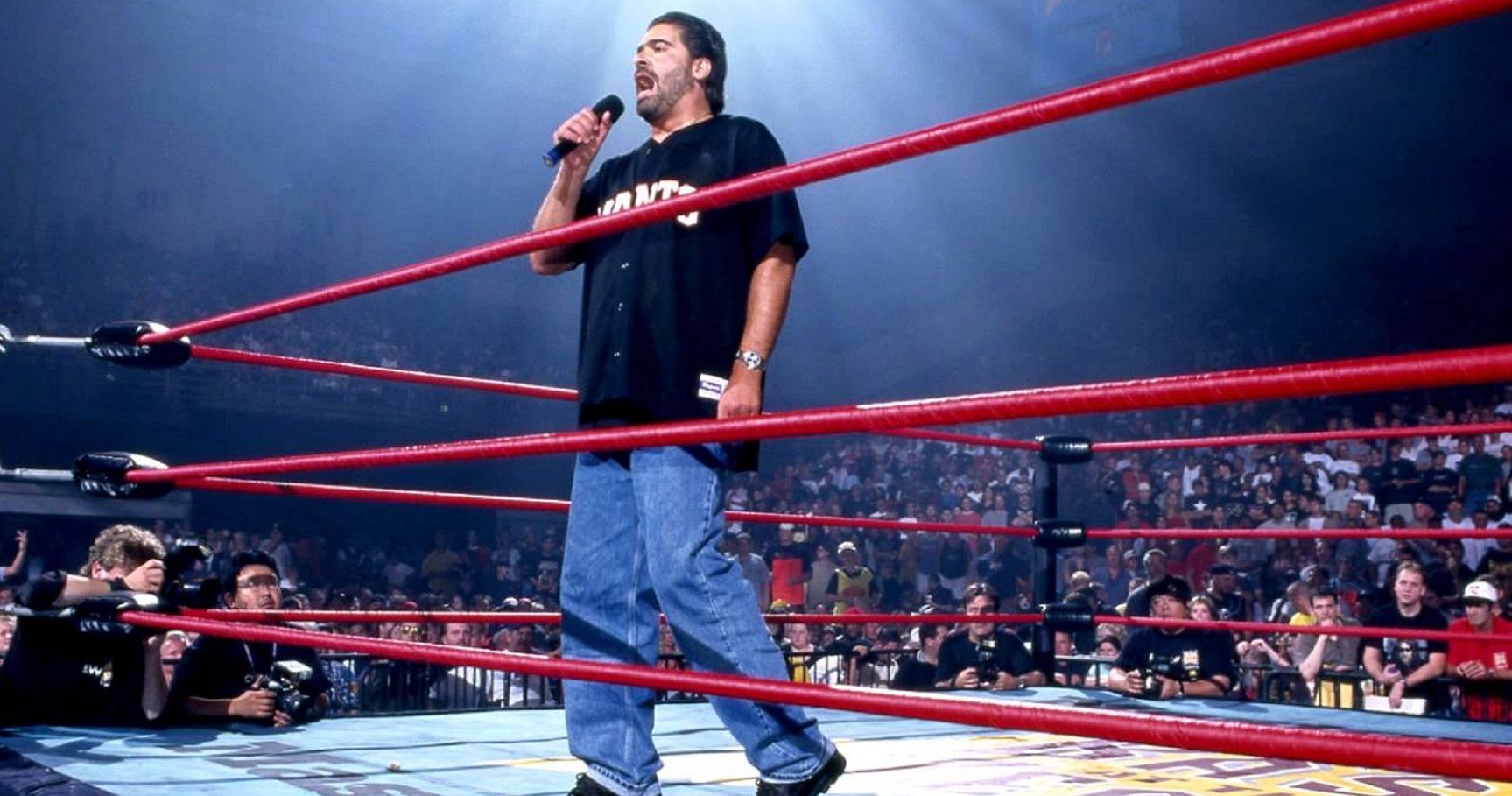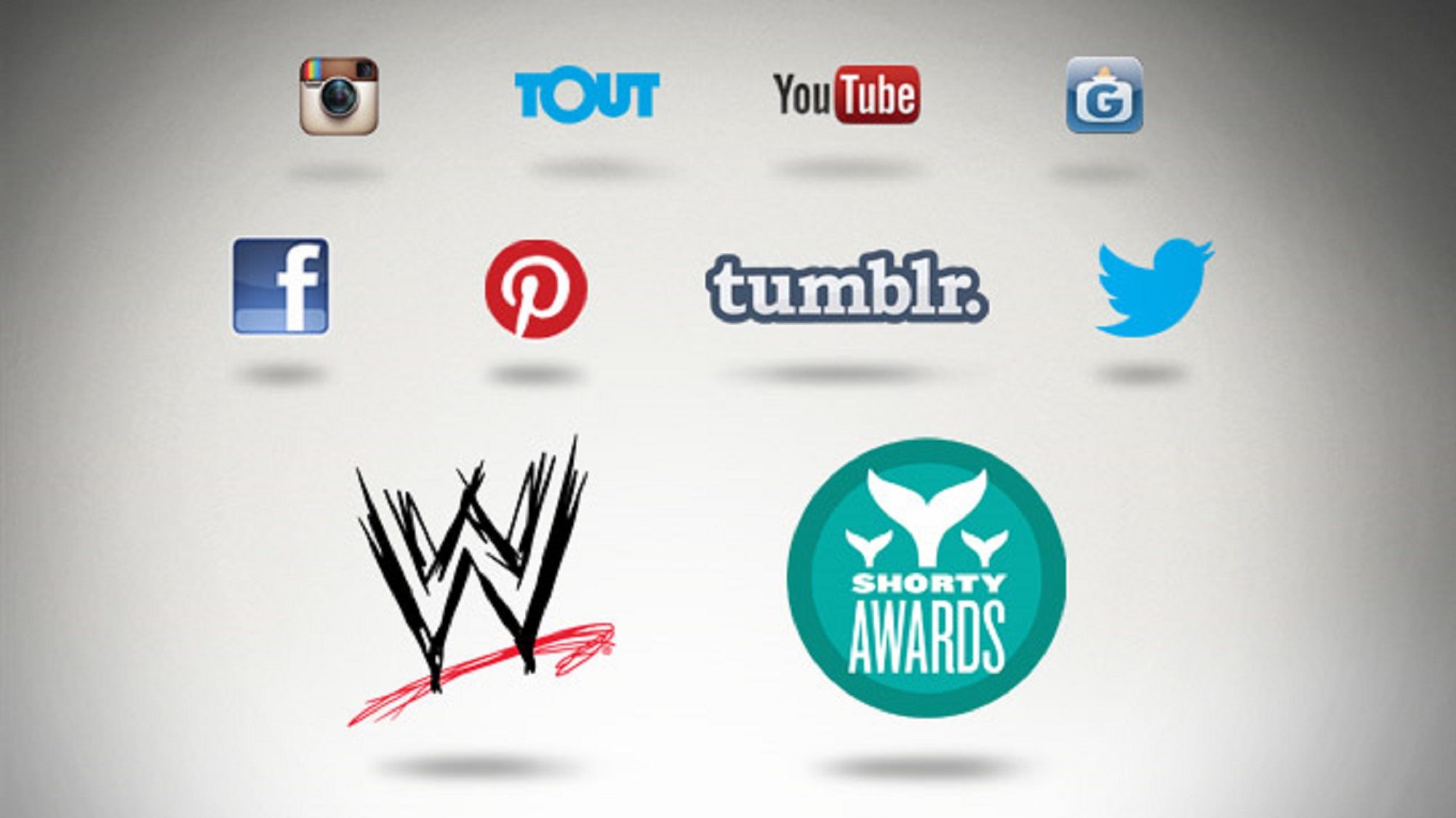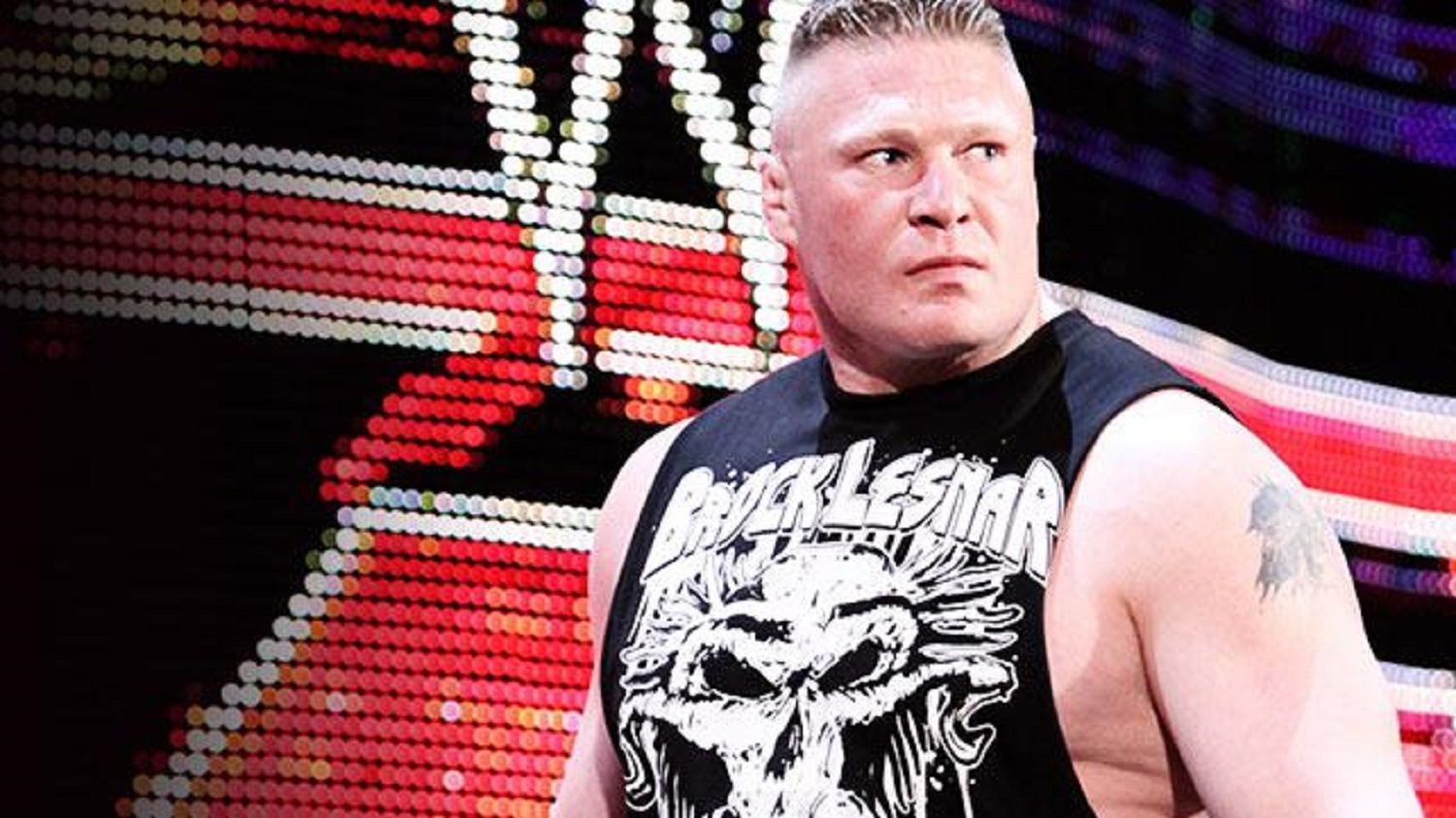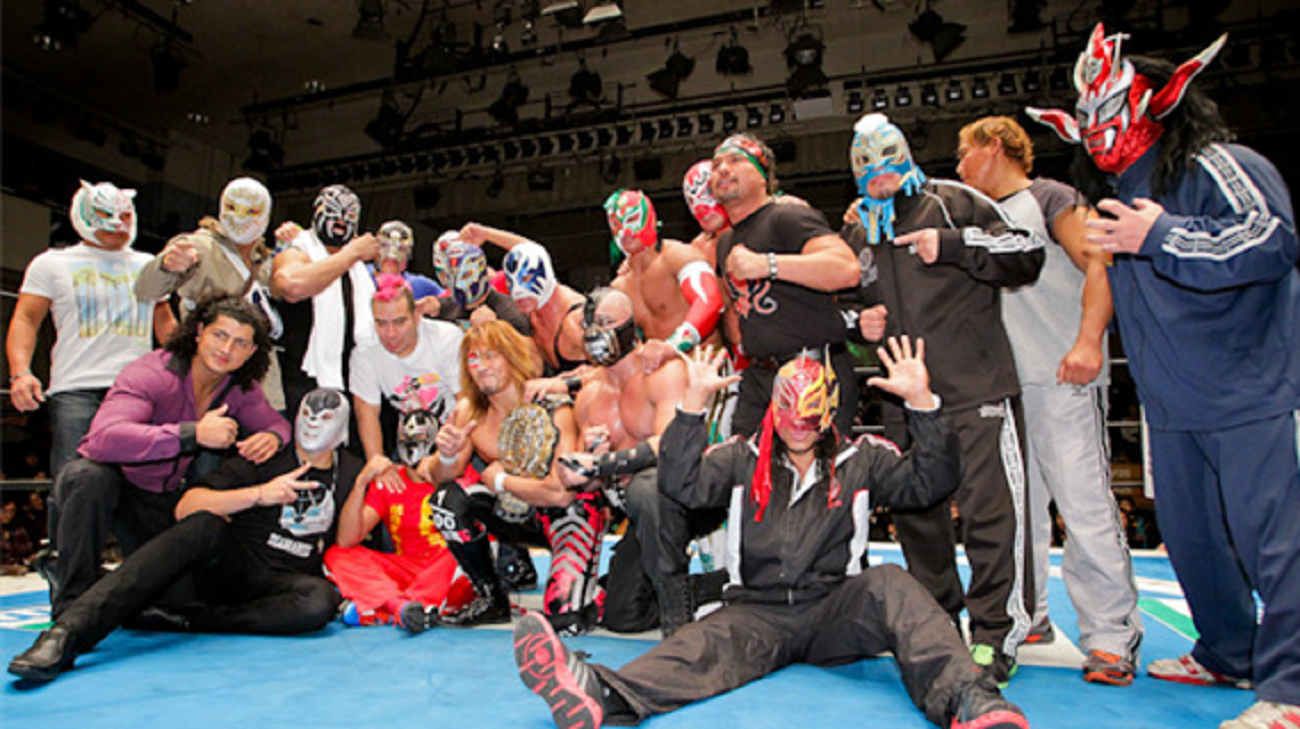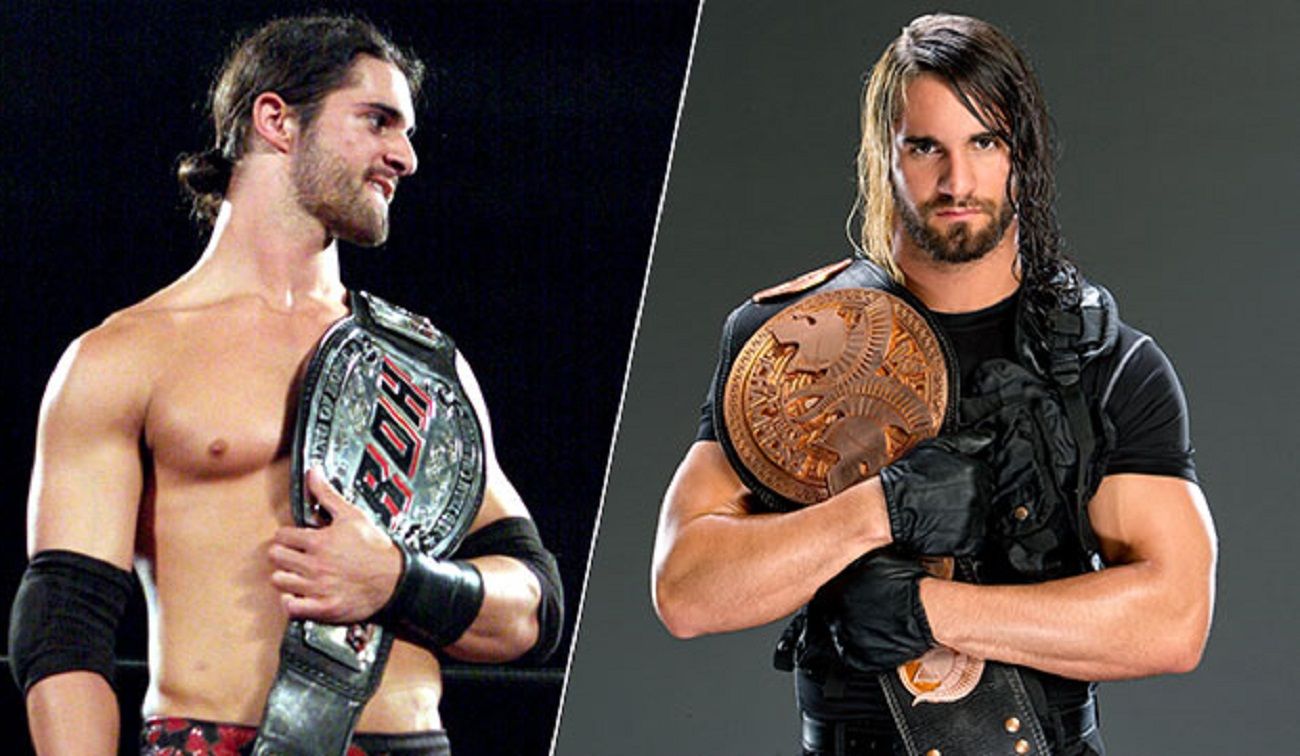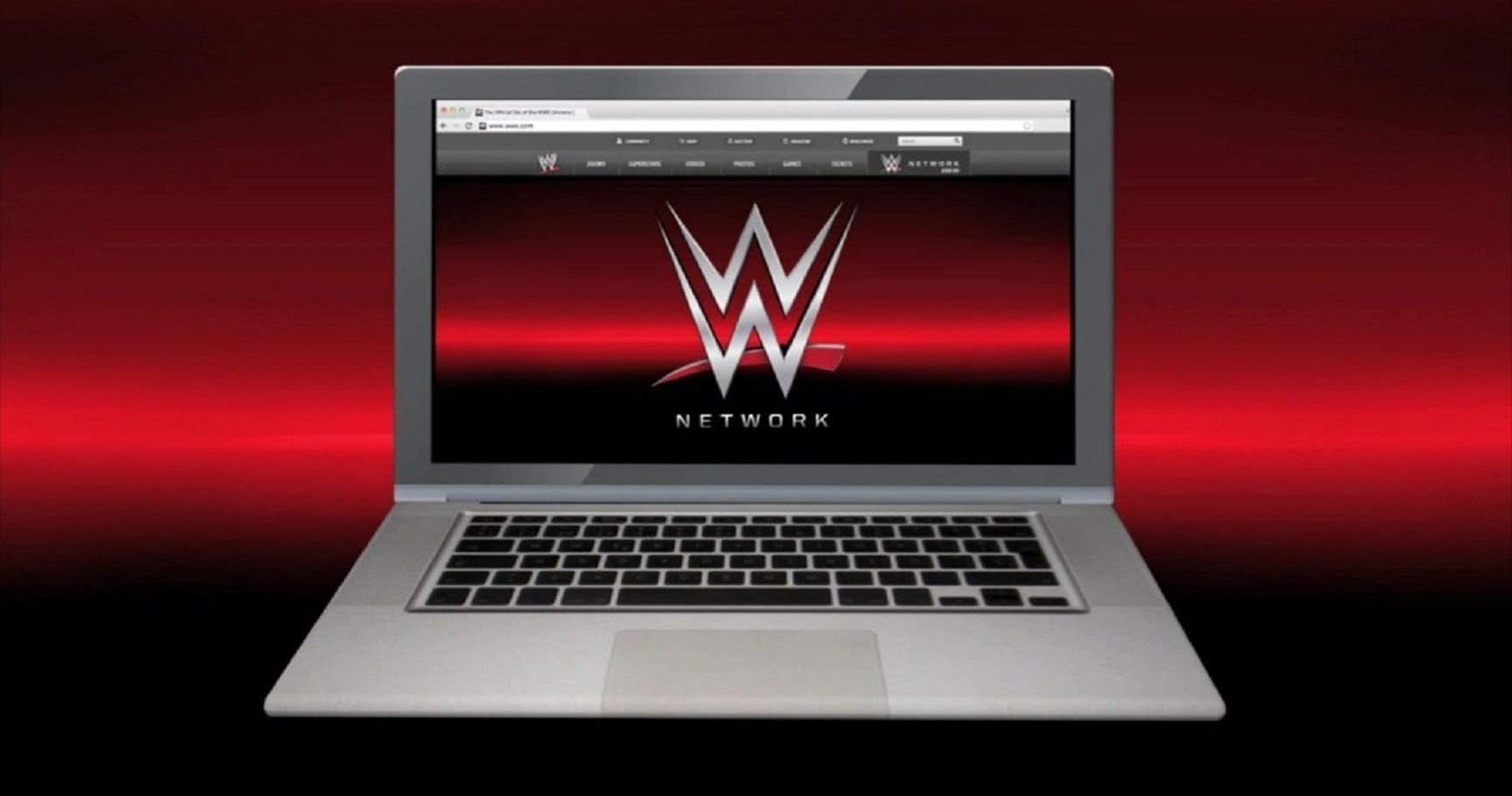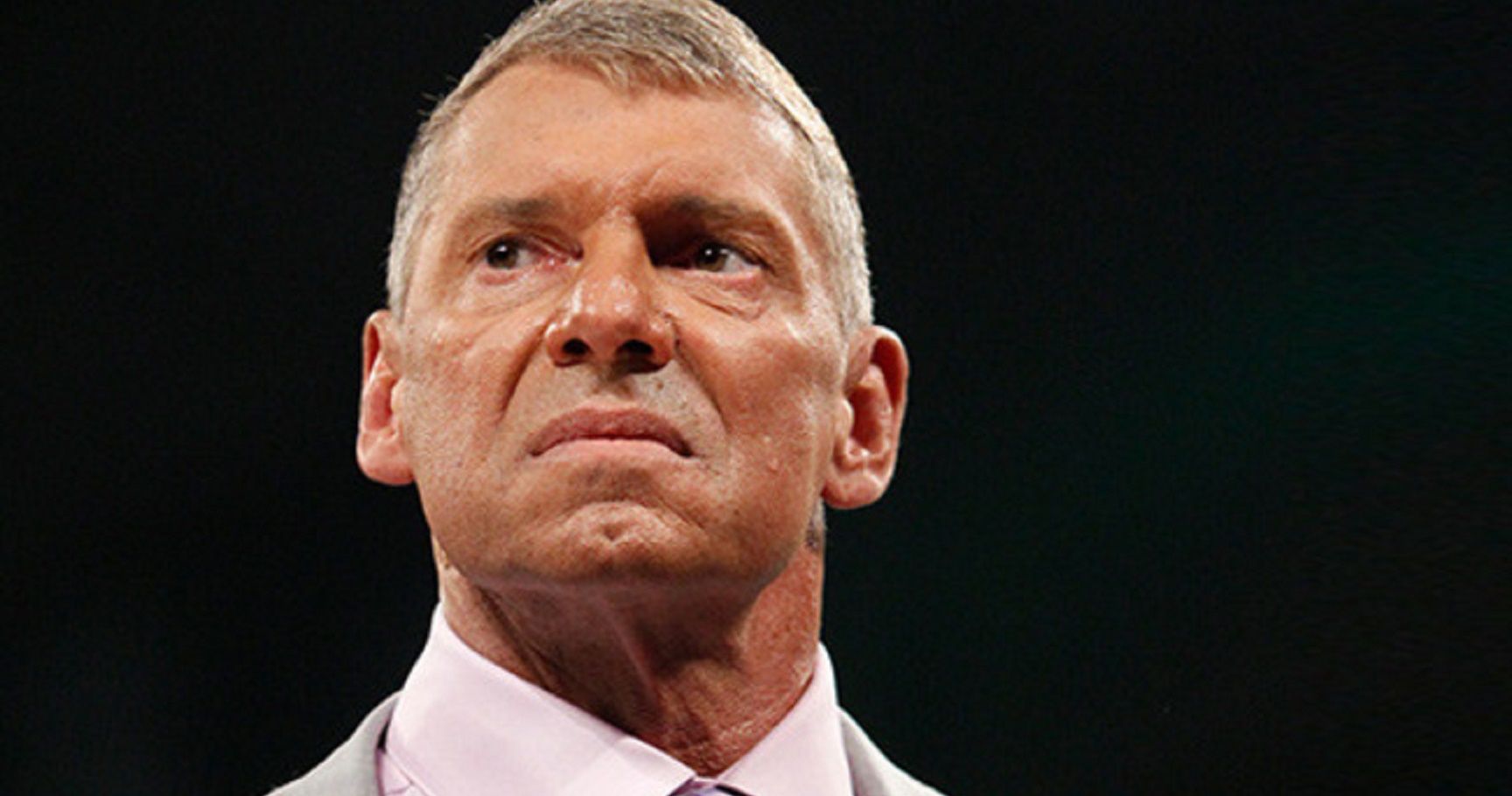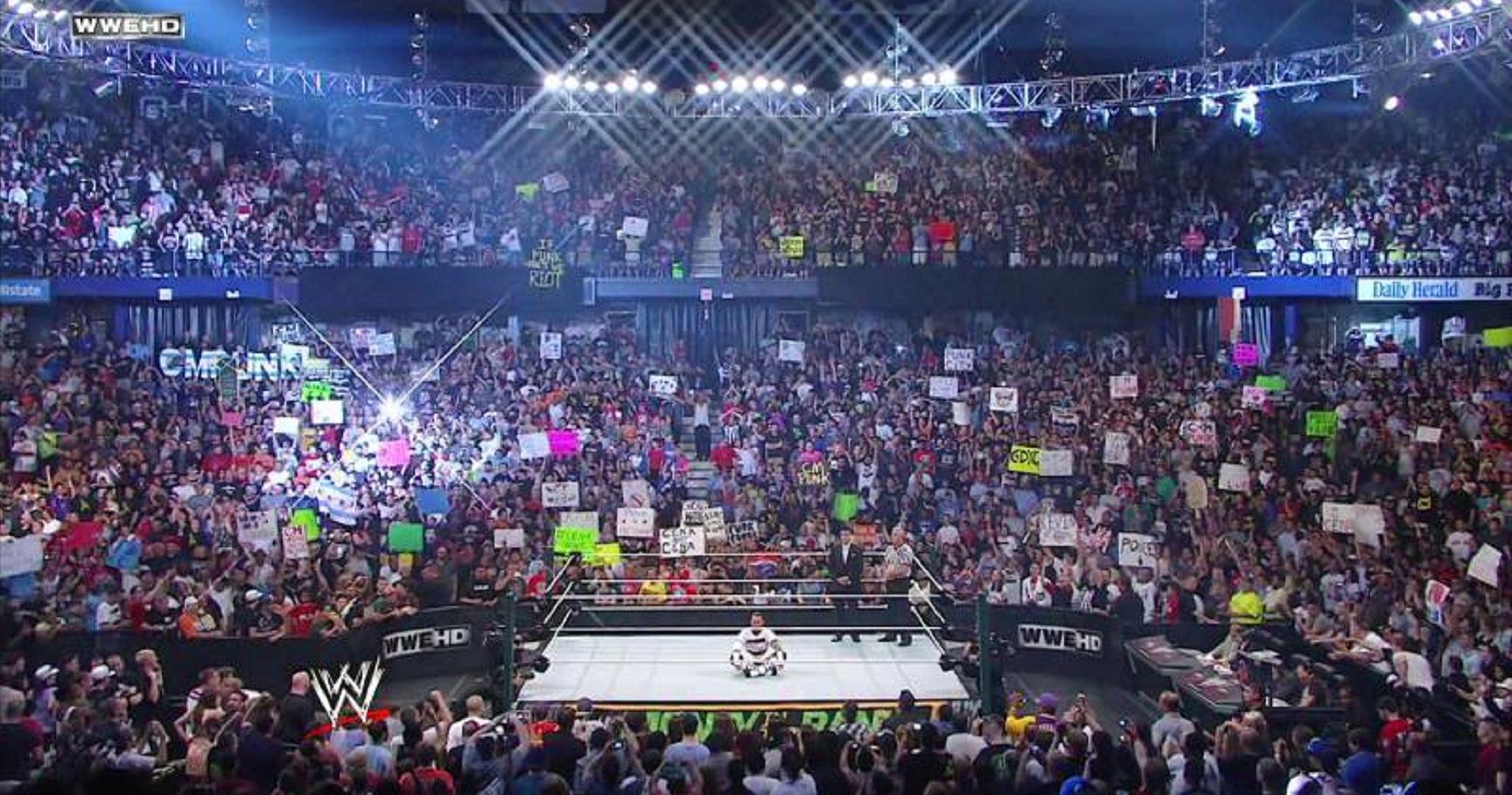Ever since the Internet moved past the domain of college campuses and government offices and into the home, it's been used as a method to discuss the ins and outs of the pro wrestling world. From the pro wrestling forums on Usenet and the forums on services like America OnLine and Prodigy to Reddit and various social media today, the world of sports entertainment (kayfabe or otherwise) has been analyzed, argued about, criticized and made fun of for decades.
The ever expanding popularity of the Internet can also be attributed as a factor in the rise of popularity of wrestling during the Monday Night Wars. If Scott Hall's first post-WWE appearance on WCW television happened, say, in 1992 as opposed to 1996, would the buzz have spread as quickly without fans jumping on AOL Instant Messenger, email and message boards? When Tony Shiavone announced that Mick Foley was gonna put butts in seats by winning the WWE title, how many of those millions of viewers turned switched to Raw because their buddy sent them an IM about it?
We, uh, don't actually have those stats. These were more rhetorical questions than anything else. Also, Scott Hall was still in WCW in 1992 so, yeah, that was a weird question. Let's move on.
It's also been a way for fans to directly influence the product itself. We're not talking those moments where fans can get on the WWE App and decide the stipulation of the upcoming Sheamus/Randy Orton match out of three options that are essentially three different ways to say "No DQ match" (we're on to you, WWE). We're talking the in-jokes, the outrage and the surprise-ruining breaking news that changed the way the way the wrestling business did, well, business. Some of these are very specific while others are just general things that still made a huge difference.
From little details to major changes, here's the 10 times the Internet (that's you guys!) affected the world of pro wrestling.
10 10. The iPPV
For years, it was considered a sign of success if your wrestling promotion was able to broadcast a major event via a nationwide Pay Per View network. WWE dominated the market for years, followed by WCW's extension of the format into nearly monthly PPVs. ECW was, in some ways, considered having made it to the "big time" when they put on their first PPV event in 1997, Barely Legal.
These days, PPV is nearly a relic of the past. The WWE Network (more on that in a bit) allows fans to catch their monthly events on nearly any device for a fraction of what they would usually pay.
9 9. Vince Russo's Obsession With "Internet Marks"
Say what you want about Vince Russo (and you no doubt will), but he was certainly ahead of his time in a lot of ways. He was one of the first in the business to recognize the growing community of fans online. Many of his fourth wall breaking angles and "swerves" in his waning days in WCW were set up to play up to the "internet marks". There were two problems with this strategy, however.
First, you have to take into consideration that in 1999, the majority of wrestling fans weren't actively online, much less online discussing wrestling. Angles written with the online wrestling fans in mind were lost on the casual fan, causing them to switch over to WWE programming - or stop watching wrestling altogether.
Also, that aside, the angles were just dumb. Vince Russo's angles were bad and he should feel bad. I sweah to gawd, bro.
8 8. Storylines via Social Media
Now it's 2015, however, and now even your grandmother is online. Well, mine is, anyway. Social media dominates the internet landscape, with brands around the world focusing their marketing on what's "trending" on services like Twitter, Facebook, Instagram... MySpace? Friendster? I don't know. I'm old.
Anyway, WWE is certainly a "brand" if there ever was one, and they've taken to social media with such fervor, you'd think it was the only thing keeping them in business. Every performer in the company has a Twitter account and more than a few angles have played out across the format (mostly in the form of back-and-forth trash talking - although Dean Ambrose posting photos of himself with Seth Rollins' stolen WWE title around New Orleans was a nice touch). It may be a way for the company to inexpensively promote itself, it's also a way for it to better connect with fans and tell stories across different mediums. That's always a good thing.
7 7. Brock Lesnar's 2012 Return Spoiled
One of the rebuttals to the "wrestling is fake" argument is that it's no different than any other scripted TV show. Although its live nature and narrative structure might be different, it's still a episodic series telling stories.
Wrestling fans however, unlike fans of other TV shows, will actively seek out impending results of upcoming events or performer returns online - sometimes to the point where last minute booking changes have to be made just to keep some element of surprise.
When Brock Lesnar returned to Raw the night after WrestleMania in 2012, it should have been one of the most shocking WWE moments in recent memory. Until word began to spread online that Lesnar was in the building. It got to the point where WWE themselves announced it on Twitter just minutes before his reveal. And fans wonder why there are no surprises in wrestling anymore.
6 6. The Growing Popularity of Non-American Wrestling in the U.S.
Well before streaming media or YouTube or, hell, even before online video itself, the only way to catch Japanese wrestling - short of actually going to Japan - was to purchase video of it on VHS. Wrestling magazines would feature ads from video services selling these tapes, which were then copied and traded among friends. For instance, in my college days, my friends and I would spend countless evenings watching classic matches from Japan when we weren't busy not going on dates.
It's a smaller world now and content from around the world is significantly easier to come by. The growing popularity of New Japan Pro Wrestling partially led to the signing of KENTA/Hideo Itami to NXT. Access to more Lucha Libre content helped propel the success on El Rey network's "Lucha Underground" (the main reason is because it's awesome). International stars are becoming household names well before they hit these shores, something that would have been inconceivable fifteen years ago.
5 5. WWE Acknowledging Other Promotions
From the early days in the 1980s you would never - eeeeeeeeeever- hear the names of other promotions on their TV programming. As far as they were concerned, they didn't exist. There were certainly exceptions - Ric Flair showing up on with the NWA title belt, for example (although the NWA was never mentioned by name). This rule was broken constantly during the Monday Night Wars (but then, what rules weren't?), but once the dust settled, WWE went back to pretending they were the only game in town. Which, let's be honest, they kinda were.
In February of 2014, WWE.com ran an article on the influence Ring of Honor had on the current WWE product. It didn't just mention ROH, it was about it. Of course, this was after CM Punk's "pipebomb" promo in 2011, where he name dropped both ROH and New Japan.
4 4. The WWE Network
The WWE Network is the culmination of all of the company's online output - from their website to their YouTube channel to their investment in Tout (that clearly went well, didn't it?) to even their social media. Much like the service it's based on - MLB.TV - the WWE Network can give fans nearly unlimited content as well as access to live events. And, it's Internet only.
Much in the same way that both cable TV and PPV changed the wrestling industry, the WWE is hoping their network will have the same effect. Whether or not they take advantage of the format remains to be seen.
3 3. Piracy
It's possible that part of the strategy to move most of their PPV focus onto the network is centered around the fact that people simply weren't paying for the damn PPVs. Instead, streaming technology had advanced to the point that people would simply stream the events live online for free. The fact that this is clearly illegal didn't deter anyone - new streams would pop up as quickly as the old ones got shut down.
Other WWE video content would also pop up on illegal download sites, digging in to their sales of home video releases. Much like the music, gaming and movie industries, pro wrestling has had to reevaluate their business strategy in this age of Internet piracy.
2 2. Hijacking Raw
If there's anything that hath more fury than a fanbase scorned, it's a scorned fanbase that can organize online. When CM Punk unceremoniously made his exit from the company and it seemed as if their demands for a Daniel Bryan success story were going unheard, the plotting began. Using Reddit, Twitter, Facebook and other forms of social media to create their own smarky Arabic Spring, fans conspired to "hijack" PPVs and episodes of Raw through the use of chanting.
Arenas would echo with choruses of "CM Punk!", "Dan-Yul Bry-An!", and, of course, "This is/we are awesome!" This wasn't an organic development, this was a carefully (okay, maybe not that carefully) plotted strategy designed to show WWE their displeasure with the product. Instead of, you know, simply not buying the product. That would be silly.
1 1. The "Death" of Kayfabe
Maintaining the illusion of pro wrestling as a legitimate athletic competition was more than just a time honored tradition in the industry. It was considered vital to the success of the business overall. While over time, especially with the end of the territory system, the insistence on this diminished - Vince McMahon, for instance, coining the term "sports entertainment" and pretty much flat out telling the world what it already knew. Still, a level of secrecy was maintained. Breaking this code of silence could very well lead to THE BUSINESS BEING DESTROYED!
Then the Internet came along and ruined all of that.
Backstage, behind the scenes news and rumors were nothing new, of course. "Dirtsheets" like Dave Meltzer's "Wrestling Observer" were available, if not known about by the average wrestling fan. However, it's one thing to "expose the business" to a few hundred newsletter subscribers - it's a different animal when it's done on a website the whole world has easy access to.
Eventually, terms like "heat", "babyface/heel", "push" - hell, even "kayfabe" itself - were as commonplace among the lexicon of fans as they were the workers themselves. The wrestling reports on this very website - this very article - is a direct result of this. Nowadays, wrestling companies harbor no illusions - WWE themselves have two programs alone devoted to the behind the scenes activities of their company (although no less scripted than any other "reality" show)
Overall, there's still so much the casual wrestling fan - no matter how "smart" they think they are - simply isn't going to know about the world behind the curtain without actually being there. However, by letting the fans into that world, even just a little bit, didn't "destroy the business." On the contrary, it's made it all the more compelling.
Those are just 10 of ours. What other ways has the Internet changed the wrestling world?

